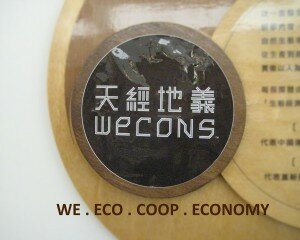We’re having one of “those” weeks. Jenny has been busy in Hong Kong, participating in an Idea-Jam Workshop on Social Inclusion in the City; attending a talk by Amory Lovins from the Rocky Mountain Institute on energy futures (based on his recent book, Reinventing Fire); reading about The Next System Project on political-economic possibilities for the future; and giving a talk at and preparing for her departmental seminar at the Chinese University of Hong Kong (based on Take Back the Economy, and the diverse and community economies that she’s been learning about in Hong Kong).
Ok, it’s been busy, so what’s made it one of “those” weeks?
Each of these events have featured, in their own way, some sort of change. Taken together, they produced the sense that we are on the cusp of something “big”. So it’s been one of those weeks when things from different directions seem to homing in on the same point—that some sort of major societal transformation (for the better) is underway. And perhaps of the scale that’s really only visible retrospectively. Let’s take each of these events in turn.
At the Idea-Jam, Hank Kune and Frank van Erkel from Amsterdam talked about the work of Josephine Green from when she was at Philips Design and started to detect a change that she called the shift from Pyramid to Pancake. The Pyramid society is associated with industrial societies that have a hierarchical structure and a competitive mindset; whereas the Pancake society is flatter and characterised by collaboration, co-production and connectivity.
Amory Lovins talked about how the pace of the shift to renewal energy is starting to speed up. So much so, that he has a neat turn of phrase to say that fire made us human; fossil fuels made us modern; but renewal energies—those energy sources that are not just durable but plentiful—are potentially going to revolutionise what it means to be human.
The Next System Project, as the name suggests, is concerned with conceiving of a new system for that 21st century that might be an alternative to corporate capitalism (and state socialism). The project sees this alterative as being based on the experiments that are already underway and what it calls “the explosion of new ideas and activism” (Alperovitz, Speth & Guinan, 2015, 4) that is of a scale that surprises “[e]ven experts working on such matters” (6).
And of course Jenny talked about the ways in which people across the globe, including in Hong Kong, are innovating with a range of diverse economic practices in order take back the economy to make it work for people and the planet. As we are increasingly finding, these innovations are not just fringe activities; they are remaking our economies as we know them. For example, in a report that came into Jenny’s email just this week, the contribution of social enterprises to GPD in Australia is expected to soon rival agriculture (which is astonishing when think of Australia’s reputation as a net agricultural exporter). Similarly, the latest report on the world’s largest 300 co-operatives shows that their combined turnover in 2012 was equivalent to the GDP of Brazil—the world’s seventh largest economy
What is striking about these four events is that people working in very different contexts are all picking up on major societal changes—from Frank van Erkel who works for the Municipality of Amsterdam; to a Physicist such as Amory Lovins who is working with countries like China on renewable energy options; to leading thinkers based in the US such as Gar Alperovitz and James Gustave Speth; to those of us in the Community Economies Collective who are interested in what is going on across the globe.
What is also striking about these events is the shared way in which they all talked about the role of civil society and government. Hank Kune and Frank van Erkel suggested that we are perhaps moving into an era where civil society leads and government follows; Amory Lovins described how civil society and private enterprise are setting the agenda; the Next System Project identifies that the failure of governments to address current issues has fuelled the explosion of alternative activity; and in our own work we have always been interested in what people are doing in spite of rather than because of government. Again, these insights all seem to be pointing to the possibility that something big is underway.


Leave us a Reply